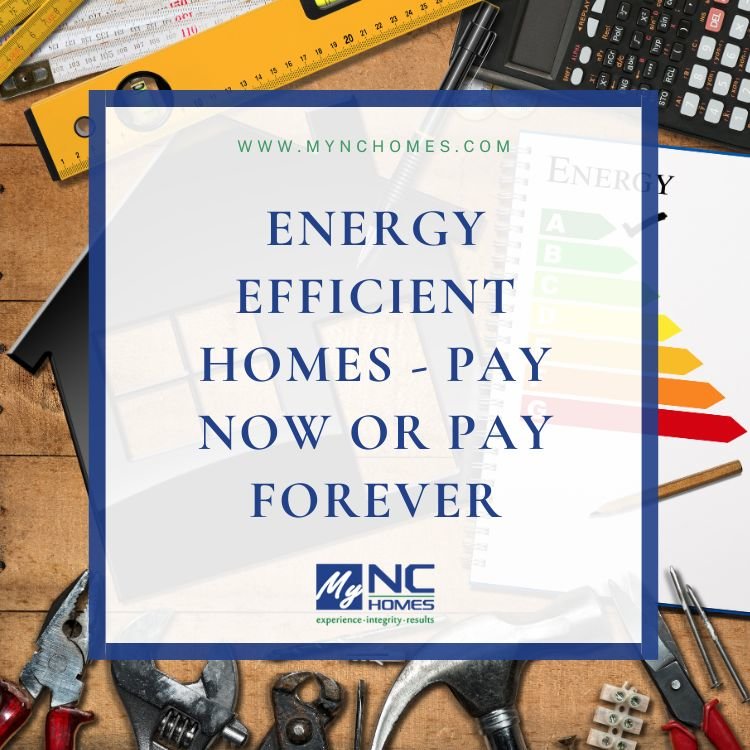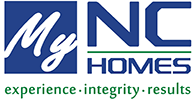
Summer months are approaching and here in NC it's not uncommon for us to hear from homeowners that their energy bills have skyrocketed. You may have already noticed the increases in energy costs this winter. The price of energy and the policies that support homeowners upgrades towards energy efficiency have many homeowners wanting to make home updates, but where to start? We would like to offer an energy efficiency cheat sheet.
The REAL Cost of Energy Inefficiency
Inflation contributes to increased living costs from food to goods and services. One way that homeowners can reduce living expenses is to transition to more energy-efficient homes. To better understand just how much the price of energy has increased, consider these statistics from the US Board of Labor and Statistics.
-
Overall Energy Prices rose 41.6%
-
Electricity Rose 13.7%
-
Natural Gas Rose 38.4%
These increases are not small changes, and in fact, should be an impetus for homeowners to make a change to more energy-efficient homes.
Easy Energy Transitions
Many of our buyers would like energy-efficient homes and sellers would like to make upgrades that make their homes more attractive to buyers, however, so many of our clients see this as a zero-sum game where they convert to full solar panels or do nothing at all. Here are some really easy ways to convert to more energy-efficient practices.
-
Smart Thermostats: Look for smart thermostats and make the upgrade. This is not a huge expense, but it will make your energy consumption in cooler or warmer months much less. They automatically change both your heating and cooling more accurately, depending on them sensing people in the house and based on your personal preferences. When no one is home, they make sure your not paying to run your AC or Furnace.
-
Whole House Fans: Fans are a great use of energy and reduce energy costs considerably. The use of air conditioning consumes a lot of energy and fans help circulate air. Attic fans are another excellent way to reduce the heat that builds up in your attic during the summer months and when properly installed can reduce the heat in your attic by 25-35 degrees.
-
Insulated Windows: Where a whole house fan helps the comfortable air circulate, proper insulation keeps this air the correct temperature longer, also reducing the need to run conditioners longer. Another benefit is that they help to keep your home quieter.
-
Efficient Air Conditioners: A larger upgrade is to an energy-efficient air conditioner. This really reduces costs in the long term, so do not immediately discount this, thinking the expense will be too great. Additionally there are government credits available to install energy efficent heat pumps
-
Radiant Barriers: Radiant barriers are typically applied in attics and unlike insulation, it actually reflects energy from sunlight, instead of absorbing it. This can be really useful in warm climates. Be mindful to consult a professional before attempting to put radiant barriers into place because in cold months it can cause condensation.
- Insulation - Many homeowners don't realize it but the vast majority of insulation loses it effectiveness over time. If your home is 10 or more years old it may pay huge benefits in terms of personal comfort and money savings to have a foot or more of insulation added to your attic. Locally you should check with your utility companies as Duke Energy for example offers rebates to homeowners who add insulation. they also offer rebates for air sealing your ducts etc.
In addition to these suggestions that chiefly address the costs of heating and cooling, if you are looking to transition to alternative types of power, it is another amenity that is in demand for buyers in the Triangle. Reach out to us to discuss more if you are thinking of adding before selling, so we can offer a perspective on where you stand to gain or lose from the costs of your energy-efficient transition.
Financing and Tax Breaks
We have outlined how these energy-efficient transitions can be easy and low-cost, but we now want to point out that you can also be compensated for them. Tax credits exist for clean energy equipment like solar panels and appliances, wind energy, geothermal heat pumps, and battery storage. Tax credits can be directly applied to your upgrades. If you are looking to finance these upgrades, here are the best ways to finance home upgrades.
Whether you upgrade to more energy-efficient appliances, or heating and cooling systems, is really a decision that comes down to whether you would like to pay more sooner or later. Contact My NC Homes if you are looking for an energy-efficient home in the Triangle or if you are considering selling and wondering if you should upgrade first. We look forward to assisting you!
Posted by Larry Tollen on
Leave A Comment